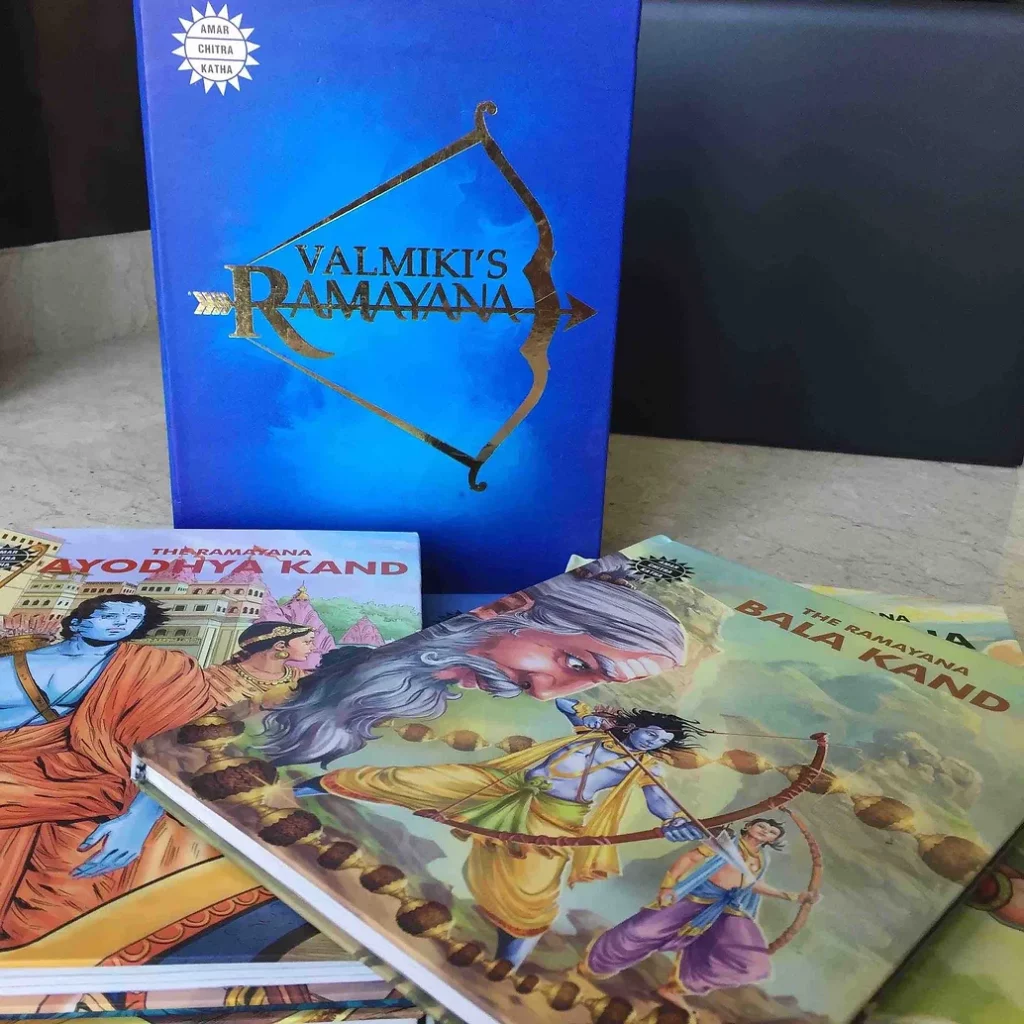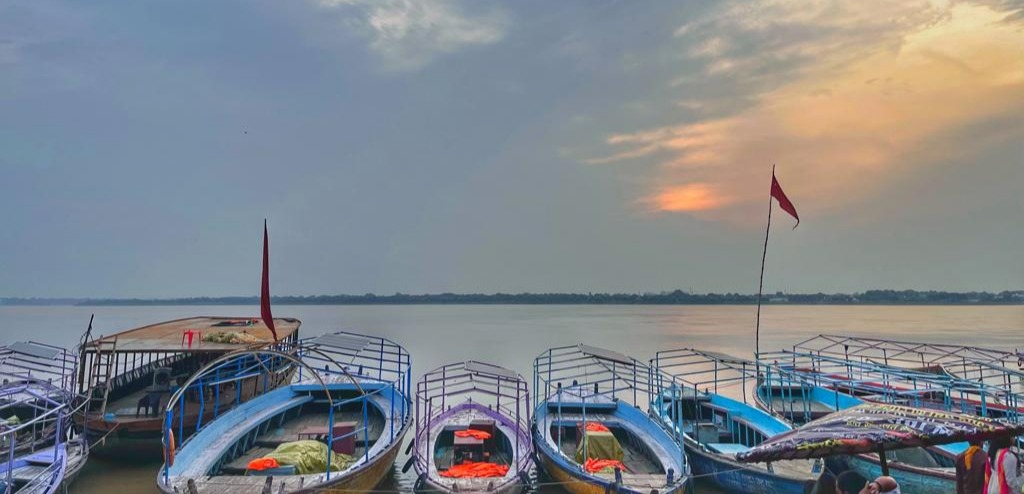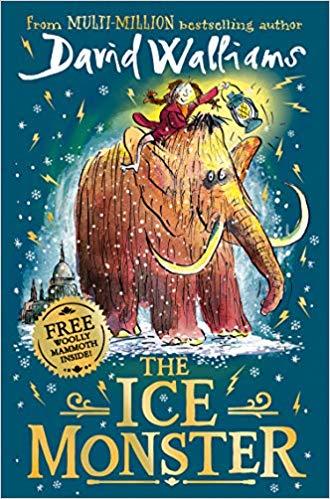After reading the Mahabharata I wanted to read another Amar Chitra Katha. I told this to my mother and she bought me the Ramayana. I took a seat on the sofa with the box of 6 ‘Kands’ beside me and was soon trapped in the world of Ramayana. This Amar Chitra Katha comes in a beautiful blue boxed set decorated with a golden coloured bow and arrow. In the box, there are 6 books: Bala Kand, Ayodhya Kand, Aranya Kand, Kishkinda Kand, Sundara Kand and Yuddha Kand.
All the six books have good and bad things in them but you really don’t notice these things the first time you read them, as you are so caught up in the story. The story of the Ramayana is of course a timeless classic, so what else would you expect?
Bala Kand: The first thing that stands out is the fact that this is the only book where Rama isn’t in exile. The main plot of this story is that the great rishi Vishwamitra comes to Ayodhya (Rama’s birth place) and asks for the teenage Rama’s help, so Rama and his brother Lakshmana go with Vishwamitra to many places, hearing stories and inflicting defeat on hordes of rakshasas (demons in English). It is my favourite book of the series but at the same time the shortest.
Ayodhya Kand: This book is the beginning of Rama’s exile and by far the most emotional book of the series. In it, there’s Dasharatha’s death, and Rama’s stay at Chitrakoot where an unhappy Bharata and Shatrughna meet him to persuade him to return back to Ayodhya, then there is Ayodhya in tears and so on and so forth. Though it is a long book there is not much to say about it unless you go deep into the details. I don’t like it much as it is a very weep and wail type of book.
Aranya Kand: Once more, Rama kills hordes of rakshasas including Khara and Dooshana, both brothers of the mighty Ravana. If you want me to be precise, 1,400 rakshasas are slain in 1 muhurta or 48 minutes. Annoyed at the slaying of his brothers, Ravana plots a terrible revenge, abducting Sita. It is a book full of spite and trickery.
Kishkindha Kand: In order to find Sita, Rama seeks out Sugriva, a Vanara exiled by his brother, Vali. Rama kills Vali and then, Sugriva who has risen to the throne, sends out a 6 lakhs army of Vanaras around the world to find Sita. It is a good book yet it leaves you on a cliff-hanger; so always have Sundara Kand beside you when you are reading this book so you can leap into it.
Sundara Kand: This is a short but fun book containing almost no Rama. It has Hanuman’s trip to Lanka, his fight with rakshasas and the finding of Sita, and of course, the very popular burning of Hanumna’s tail and then Lanka itself. Did you know Sundara Kand means The Beautiful Episode in Hindi?
Yuddha Kand: This is the centre of the whole Ramayana. Every last thing that happened was to reach this war, the war of Vanaras and Rakshasa and Rama’s greatest victory, so, the point where everything bubbles into a huge war. I could keep on giving what it was but I’ll finish this off by saying this is a great book and a perfect finale.
The books have excellent narration, graphics and simple wording. Talking of graphics, Rama goes from super muscular in Volume 3 to really thin in Volume 4. This I figured was not the easiest thing to notice as you are so caught up in the tale. I personally noticed this when I looked through the credits, and figured that the artist for each of the books are different. The wording is excellent, yet in formal language; other than that everything was amazing (from the wording point of view).
If you are into mythology I’d suggest buying it, and even if you aren’t, it will turn your views around. It is a good starter and also a beautiful way to start reading up on mythology. The books are thin which is helpful for a young person also if this wasn’t like that the book would be very heavy. If you liked this book try the Mahabharata, also available in Amar Chitra Katha and I have done a review on it here.



